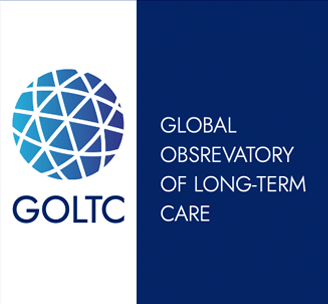NEWS:- Quasi-experimental methods Interest Group
Quasi-experimental methods
19/11/2024
Published:
24 Oct 2024
Missing the mark: the effects of abolishing co-payments for social assistance in the Netherlands. 19 November 2024
Missing the mark: the effects of abolishing co-payments for social assistance in the Netherlands GOLTC Quasi-Experimental Methods Interest Group webinar Date: November 19th, 2024 Time: 1 to 2 pm GMT Link: Register to join on Zoom Local public provision of social assistance to older individuals can improve well-being and prevent the use of expensive care […]
Published:
05 Sep 2024
GOLTC webinar recording: To Stay or to Go: Institutional vs Home-based Long-Term Care
GOLTC Quasi-Experimental Methods Interest Group webinar Date: 23 July 2024 Time: 1pm BST As populations age, a key question is whether institutional or home-based care better serves long-term care (LTC) recipients’ health needs. Using administrative data from 2009-2014 from Spain, the authors compare changes in hospitalization rates between nursing home and home-based LTC recipients. […]
Published:
05 Aug 2024
New GOLTC Methods guide: Propensity Score Matching (PSM)
We are delighted to share with you a new GOLTC Methods Guide on Propensity Score Matching (PSM). The GOLTC Methods Guides are short introductions to useful methods for Long-Term Care research written by researchers who use these methods and want to share their experience and knowledge. The Propensity Score Matching guide has been written by Joaquin Mayorga […]
23/07/2024
Published:
06 Jun 2024
To Stay or to Go: Institutional vs Home-based Long-Term Care (LTC) 23 July 2024
To Stay or to Go: Institutional vs Home-based Long-Term Care (LTC) GOLTC Quasi-Experimental Methods Interest Group webinar Date: 23 July 2024 Time: 1pm BST (you can check your local time here.) Link: Register to join on Zoom As populations age, a key question is whether institutional or home-based care better serves long-term care (LTC) recipients’ […]
Published:
09 Feb 2024
How can we better understand preferences for ‘Ageing-In-Place’ (AIP) | GOLTC webinar recording
Are you interested in connecting with others who are using quasi-experimental methods in long-term care research? On Wednesday 24th January 2024, the new Global Observatory of Long-Term Care (GOLTC) hosted a webinar which brought together researchers, policymakers, and practitioners to share and discuss quasi-experimental methods and what they have shown us about Ageing in […]
Published:
30 Oct 2023
Recommended reading: Effects of a financial incentive scheme for dementia care on medical and long-term care expenditures. A propensity score–matched analysis using data from Japan
Javiera Cartagena-Farias Care Policy and Evaluation Centre, London School of Economics and Political Science People with dementia admitted to hospital are more likely to experience negative outcomes compared to patients not living with this condition – further functional decline, longer lengths of stay (LoS), higher readmission rates, and higher mortality rates. Thus, in April […]
Published:
11 Oct 2023
Recommended reading: using Difference in Differences to evaluate vertical health and social care integration in Scotland
Javiera Cartagena-Farias Care Policy and Evaluation Centre, London School of Economics and Political Science The integration between health and social care services is at the core of current policies in many developed countries. It is believed that closer integration of the services provided by healthcare and social care organisations is vital for improving system efficiency […]

